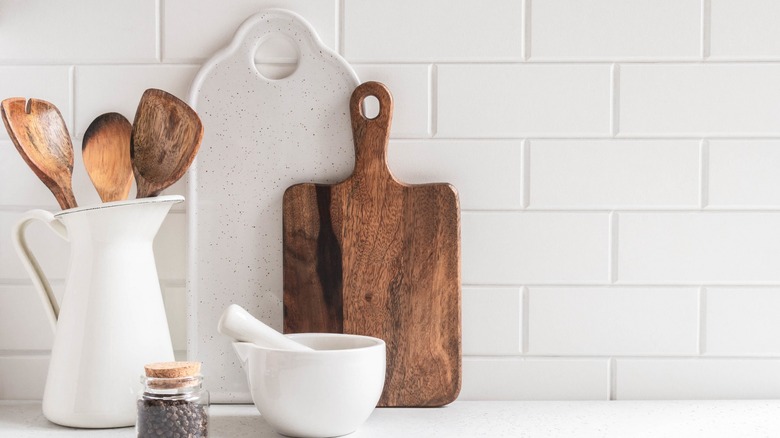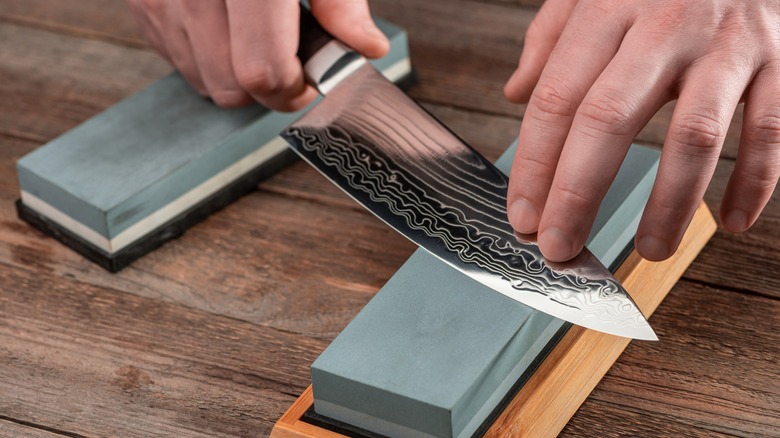Why It's A Safety Mistake To Use Glass Cutting Boards
In every cooking venture, the tools we use are as crucial as the ingredients. Among these tools, the cutting board is a kitchen staple, and of the various materials used for these boards, glass has become particularly prominent. Glass cutting boards are visually appealing, seamlessly fitting into modern kitchen aesthetics. Their non-porous nature makes them resistant to bacterial buildup and easy to clean, features that attract many health-conscious individuals. However, despite these benefits, their drawbacks, especially in terms of safety, are significant.
The primary safety issue with glass cutting boards is the increased risk of injury. The hard, slippery surface of a glass cutting board makes it easy for either the knife or the food being cut to slip, potentially leading to serious accidents. When cutting on softer materials like wood or plastic, the knife blade can dig in slightly, providing stability and control. However, on glass, there's no such grip. The knife can easily skid off the surface, potentially causing cuts to hands or fingers. Moreover, the hardness of the glass can cause food items, especially those with smoother surfaces like tomatoes or apples, to slide unpredictably. This instability makes precise cutting difficult and increases the likelihood of injury.
The downsides of glass cutting boards extend beyond safety
Beyond the safety concerns, there are other significant reasons why glass cutting boards are not ideal. One major issue is the damage they can inflict on knives. The hard surface of a glass cutting board is incredibly unforgiving on blades. Regular chopping on glass can quickly dull even the sharpest knives, necessitating more frequent sharpening. We already know that dull knives are not just a nuisance but also a safety hazard. They require more force to cut through food, increasing the risk of the knife slipping and causing an injury.
In addition to dulling knives, glass cutting boards are notoriously noisy. The sound of a knife chopping against the glass can be jarring and unpleasant, disrupting the peaceful ambiance many seek in our cooking environment. This noise can be particularly bothersome in open-plan homes where kitchen sounds carry into other living areas.
In essence, while glass cutting boards may have certain aesthetic and hygienic appeals, their drawbacks, particularly regarding safety and the maintenance of kitchen tools, make them a less-than-ideal choice.

